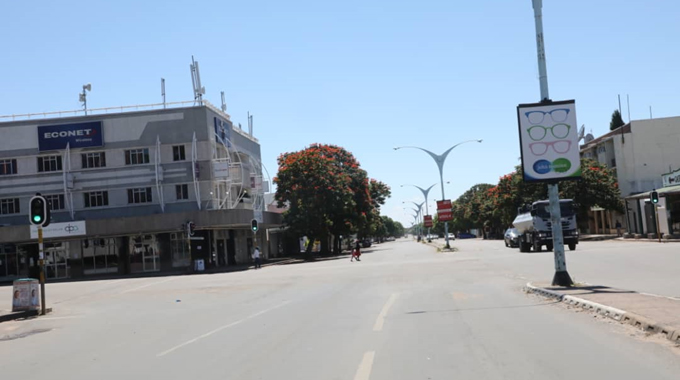
The Sunday Mail


The Black Death disease epidemic in England (1348-1349) marked the invention of the term quarantine.
King Edward III was devastated by the death of her daughter, Princess Joana, who had succumbed to the Black Death in Bordeaux.
In a bid to control the outbreak, King Edward III acted decisively to try to curb the spread, by putting England in lockdown, and people looked to the king to support them in the crisis.
In 1347, Italian ports had begun to turn away ships, fearing they carried the deadly disease.
By March 1348, protective measures were formalised, and Venice became the first city to close its ports to incoming vessels.
Those who were admitted were subjected to 30 days of isolation, later raised to 40, which eventually gave birth to the term “quarantine”.
Quarantine, coming from the Italian “quaranta giorni”, means 40 days.
It entails separating and restricting the movement of people who are exposed to a contagious disease to see if they become sick.
The Venetians went on to establish a quarantine Island, Lazaretto Vecchio, a small island in the Venetian Lagoon.
However, the measures were a little too late, as the plague killed an estimated 100 000 people, a catastrophic proportion of the Venetian population.
Although measures taken to curb the spread of infection during the first Black Death were powerless, they became contingency plans for future outbreaks.
When the plague struck again in 1563, the Lord Mayor directed that blue crosses should be attached to doors of houses that held anyone infected with the plague.
Inhabitants were to stay indoors for one month after the death or infection of anyone in the building.
Only one uninfected person was allowed out of the house, in order to buy provisions for the sick.
To mark their health, they had to carry with them a white rod, which if they forgot would incur a fine or even imprisonment.
In 1630, quarantine measures were taken in London, with the Privy Council ordering houses to shut up, with those infected inside.
To enforce the order, guards were to be stationed outside the infected house.
This was, however, replaced with an order stating that the infected were to be sent to the Pest House while the house closed up.
More famously, the village of Eyam in Derbyshire bravely imposed a self-quarantine in order to prevent the spread of infection into other villages, losing 260 villagers in the process.
In a historical context, the Spanish flu provides a classical insight when it comes to quarantines.
Drawing on data from the 1918 Spanish flu outbreak, researchers found that stopping an outbreak required early attention that used a combination of non-pharmaceutical measures.
The measures involved closing schools and banning public gatherings. Researchers found that quarantine was draconian and bound to be ineffective.
But, in an unprecedented move, China’s authorities placed Wuhan, and more than a dozen other cities under lockdown.
An estimated 50 million people were isolated from the rest of the world. This has become the largest such effort in human history.
One medical historian labelled it “the mother of all quarantines”.
The measures are seemingly paying dividend in China as Covid-19 disease morbidity and mortality rates have significantly recessed.
However, disease ecologist Peter Daszak, lamented that “outbreaks need to be dealt proactively, with emphasis on prevention”.
He observed that modern societies treat pandemic as a disaster response issue, waiting for them to happen, and then reacting, and hoping to quickly find a vaccine.
This, he argues, “is a poor approach, and more could be done to prepare for outbreaks in advance”.
On the other hand, individuals should maintain good hand hygiene, and not touching one’s own face.
This is not only a public health expert recommendation, but also what history has proven effective.
Governments must incentivise, motivate, and protect our unsung heroes, the medical professionals who are on the front lines containing the pandemic.
Those who are quick to seek medical advice, and voluntarily quarantine themselves, are heroes too.
Quarantine stops the chain of transmission because it is less possible to infect others if one is not in social circulation.
The process also allows the individuals under surveillance to be identified and directed toward appropriate care if they become symptomatic.
Even though quarantine is a curtailment of civil liberties, it is broadly justifiable under the Covid-19 global pandemic.
While some argue that quarantine affects the livelihood of individuals, it is not an excuse for deviating from the population control strategy.
Fears of a worldwide economic slowdown have heightened as there is virtual shutdown of economic activity because of the global pandemic.
But, quarantine can be ignored at own peril.
As of April 2, 2020, Covid-19 cases had risen to 953,799, with 48 509 deaths, and 202 913 recoveries.
Italy, which declared a lockdown on March 9, 2020, has since extended its lockdown until 13 April, 2020.
A lockdown is an emergency protocol that prevents people from leaving a given area.
President Mnangagwa declared a total lockdown on Zimbabwe, starting from March 30, 2020 to 19 April, 2020, to contain the spread of Covid-19 disease.
For many, a lockdown is an entirely new experience as the Covid-19 pandemic takes a firm grip over the human populations.
However, citizens must appreciate the measures being taken by the government to mitigate on Covid-19 disease morbidity and mortality.
Biblically, Isaiah 26 verse 20 says: “Go home, my people, and lock your doors! Hide yourselves for a while until the Lord’s anger has passed.”
Maintaining social distancing, staying calm and co-operating with the authorities will help slow the spread of the virus.
World-historical threats call for world-historical levels of co-operation.
For feedback: [email protected]



